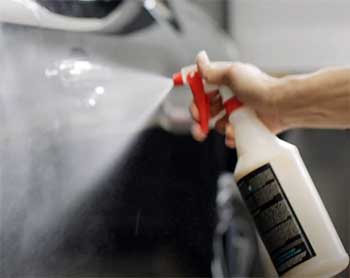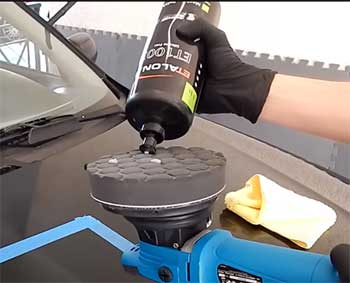ResistAll and Ceramic coating are two popular names that are likely to pop up in your search for the best vehicle protection solutions. They both offer high-level protection for your vehicle’s exterior and interior, but each has unique characteristics and benefits.
Let’s dive deeper into this ResistAll vs Ceramic coating debate to help you decide which one might be best for your needs.
A Brief Comparison Table
| Feature | ResistAll | Ceramic Coating |
| Protection Coverage | Exterior and Interior | Exterior only |
| Resistance to scratches | Moderate | High |
| UV Protection | Yes | Yes |
| Hydrophobic | Yes | Yes |
| Application | Usually at dealership | Professional application needed |
| Warranty | Yes | Usually depends on the service provider |
| Cost | More affordable, frequent reapplication | Higher upfront cost, longer lasting |
| Lifespan | 2-3 years | 2-5 years (may last longer depending on maintenance) |
| Shine | Moderate | High |
| Maintenance | Frequent | Less frequent |
| Interior Protection | Yes | No |
ResistAll: A Comprehensive Protection Solution
ResistAll is an environmental protection package that is often offered by auto dealers. Designed to shield both your car’s exterior and interior from potential damages, it offers a multi-layered protection system.
- Pros of ResistAll

The main advantage of ResistAll is its versatility.
It’s more than just an exterior protectant—it protects the interior too.
This solution is designed to guard your leather, fabric, and vinyl against potential damage from UV rays, food, drinks, and even body sweat.
ResistAll also comes with an excellent warranty, covering any damage under normal use.
This coverage provides peace of mind, ensuring you can maintain your vehicle in top-notch condition.
- Cons of ResistAll
One downside to ResistAll is that it may not provide the same level of shine as ceramic coatings. While it does a fantastic job at protection, the aesthetic enhancement isn’t as strong as its competitors.
Additionally, ResistAll is primarily available through car dealerships, so accessing it can be a challenge if you prefer to apply the protection yourself.
Also Read: Differences Between PermaPlate And Ceramic Coating.
Ceramic Coating: Glossy Protection with Longevity
Ceramic coating is a liquid polymer applied to a vehicle’s exterior. Its chemical properties allow it to bond with the car’s paint, resulting in a long-lasting layer of protection.
- Pros of Ceramic Coating
Ceramic coating stands out for its durability and its ability to maintain the vehicle’s shine. It resists scratches, UV rays, and harsh weather conditions, preserving the car’s aesthetic appeal for longer periods.
Ceramic coating also repels water excellently, preventing water spots and grime accumulation. This hydrophobic property allows the car to stay cleaner for longer and reduces the need for frequent washing.
- Cons of Ceramic Coating
One primary concern with ceramic coating is its cost and the complexity of its application process. It requires a professional to apply it correctly, which could drive up the initial investment.
It also doesn’t protect the interior of the vehicle, unlike ResistAll.
Key Differences Between ResistAll and Ceramic Coating
While ResistAll and Ceramic coating both serve to protect your vehicle, they come with distinct characteristics, applications, and benefits that separate them from each other.
Here, we’ll delve into the key differences between ResistAll and Ceramic Coating.
- Protection Coverage

One of the most striking differences between ResistAll and Ceramic coating is the areas they cover.
ResistAll provides protection for both the exterior and interior surfaces of your vehicle.
This includes the paint, leather, fabric, and vinyl.
On the other hand, Ceramic coating is applied to the exterior surface only, focusing on the car’s paint.
- Application
The application process for these two products is also quite different. Ceramic coating is a complex process that generally requires a professional for the best results. The vehicle’s exterior needs to be free of any defects, and the environment should be clean to ensure the coating bonds perfectly with the paint.
In contrast, ResistAll can be applied more easily, and it’s generally done when you purchase a new car at the dealership. It does not need as meticulous a process as Ceramic coating.
- Durability and Maintenance
When it comes to durability and maintenance, Ceramic coating takes the edge. It creates a hard protective layer that lasts for several years and requires less frequent maintenance than ResistAll.
ResistAll, while not as durable as Ceramic coating, has its advantage in the warranty that comes with it. This warranty covers damage under normal use, offering peace of mind to the owner.
- Cost
Cost is another key factor where the two differ. Ceramic coating, with its long-lasting protection and professional application, tends to be more expensive. However, it’s a worthy investment considering its durability.
ResistAll, while being more affordable, needs to be reapplied more frequently to maintain its protection. However, considering the interior protection it offers, it’s a good deal for those who want a comprehensive protection package.
Also Read: Comparison of Gyeon And Ceramic Pro Ceramic Coating.
Frequently Asked Questions (FAQ)
No, ResistAll is not a ceramic coating. It is a unique protection package designed to guard against various potential damages to both your vehicle’s interior and exterior.
ResistAll provides comprehensive protection for your car’s interior and exterior, defending against UV rays, food and drink spills, and body sweat. It also offers a reliable warranty, ensuring coverage for any damages under normal use.
Yes, ceramic coating does resist scratches. Its chemical composition allows it to provide a durable layer of protection that can withstand minor scratches and harsh weather conditions.
Deciding between a car wrap or ceramic coating depends on your specific needs. A car wrap is great for changing the vehicle’s look and offers some protection, but it doesn’t provide the same level of durability as a ceramic coating. If you’re more interested in long-term protection and maintaining your car’s aesthetic appeal, a ceramic coating would be a better choice.
The Bottom Line
Both ResistAll and Ceramic coating have their pros and cons. If you’re looking for comprehensive interior and exterior protection with warranty assurance, ResistAll is an excellent choice.
However, if your priority is maintaining your car’s exterior shine while providing long-lasting protection, Ceramic coating might be the better fit.

